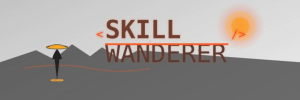Course Objective:
This course provides a broad, high-level understanding of modern computer science concepts from the birth of the internet to today's cutting-edge technologies. Our objective is to equip learners with knowledge of how the internet transformed computing, the structure of the modern digital world, the fundamentals of AI, cryptocurrency, and an overview of contemporary software development. This course builds upon foundational computing knowledge, preparing you for more detailed technical courses in modern technologies.
Target Audience:
This course is designed for anyone seeking a strong foundational understanding of computer science concepts. This includes:
- Absolute Beginners: Individuals with little to no prior computer science knowledge who are curious about the field.
- Self-Taught Developers: Programmers with practical coding skills who wish to fill in theoretical gaps.
- Bootcamp Graduates: Developers looking to strengthen their knowledge of formal computer science principles.
- University Students & Graduates:
- Undergraduates in non-technical fields (e.g., business, arts, sciences) who need a comprehensive overview of computer science.
- Professionals and long-time graduates from other fields looking to transition into technology or update their understanding.
- Computer Science Majors & Graduates:
- Current CS Majors can use this course to provide context and see the "big picture" connecting their specialized university courses.
- Holders of a Bachelor's in CS can use it for interview preparation or to efficiently update their knowledge on modern trends.
Course Objective:
This course provides a broad, high-level understanding of foundational computer science concepts from the earliest computing machines to pre-internet era systems. Our objective is to equip learners with knowledge of computing history, hardware fundamentals, early programming concepts, and how the digital foundation was built. This course serves as the essential first part of your computer science journey, preparing you to understand how we arrived at the modern digital world.
Target Audience:
This course is designed for anyone seeking a strong foundational understanding of computer science concepts. This includes:
- Absolute Beginners: Individuals with little to no prior computer science knowledge who are curious about the field.
- Self-Taught Developers: Programmers with practical coding skills who wish to fill in theoretical gaps.
- Bootcamp Graduates: Developers looking to strengthen their knowledge of formal computer science principles.
- University Students & Graduates:
- Undergraduates in non-technical fields (e.g., business, arts, sciences) who need a comprehensive overview of computer science.
- Professionals and long-time graduates from other fields looking to transition into technology or update their understanding.
- Computer Science Majors & Graduates:
- Current CS Majors can use this course to provide context and see the "big picture" connecting their specialized university courses.
- Holders of a Bachelor's in CS can use it for interview preparation or to efficiently update their knowledge on modern trends.
